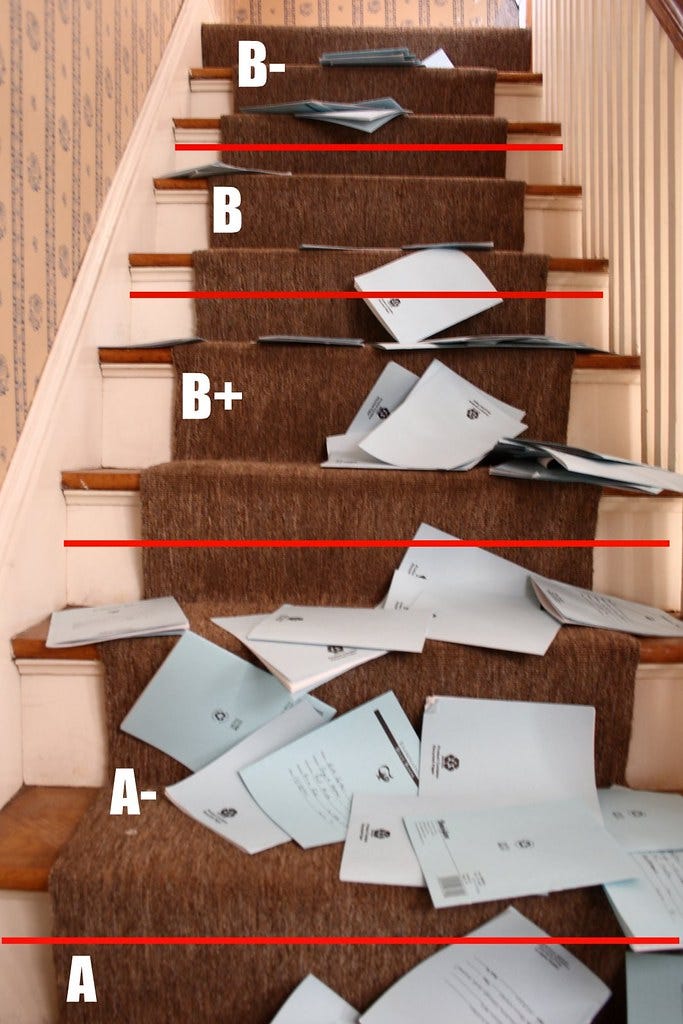Tip: Developing a Philosophy of Grading
How can our grading practices remain true to who we are as teachers, while balancing institutional constraints & respecting the role of evaluation in helping students develop as learners?
Although I’ve written several different times in the past about grading - about the technology supports that make our grading process more efficient and about bigger picture grading questions - I have recently been mulling over how to articulate a philosophy of grading that balances what I see are a few overarching concerns that faculty face.
- Concern #1: Students need frequent feedback -
Learning science tells us that frequent, small-stakes assessments of progress are more effective at getting students to keep up with the coursework and encouraging students to be self-regulated learners. Frequent assessments keep students aware of how they are doing so students can course correct early in the semester if they aren’t on track to be successful.
- Concern #2: Faculty are overworked -
Even without implementing more frequent feedback through small stakes assignments, faculty have so many different jobs to juggle. Articles on burnout abound and many of us struggle with setting boundaries on different aspects of their work. It’s challenging in the context of feeling like you are perpetually catching up to implement a new system or reflect on whether your current system is working for you.
- Concern #3: Grading is part of your teaching philosophy -
The way we approach grading is more than just something we put in the syllabus. It’s an important part of our teaching philosophy and reveals how we approach the fundamental questions about who we are as teachers. What and how we grade communicates the value we place on students’ effort and on what they produce.
Developing a Grading Philosophy
As we explore some different grading possibilities, here are some of the questions that might be helpful to reflect on.
What does “failure” mean in your context? What about “passing”?
What elements of performance (drafts? attendance/participation? peer evaluations?) should be included in an assignment grade? The final course grade?
What do your grades (letter grades, percentages, points, compete/incomplete) represent?
What do you do about “borderline” students?
What other factors (such as institution/department policies) influence your philosophy of grading?
To explore how we can make assessing and evaluating students’ progress in our courses more productive for their learning, over the next few weeks I plan to share resources about a few different methods or philosophies of grading, including specs (specifications) grading, labor-based contract grading, and ungrading. If you have any suggestions for other alternative grading practices to explore, please share them.
Do you have experience with implementing an alternative grading philosophy?
As always, thanks for reading and sharing Tips for Teaching Professors with your colleagues.




Part of my philosophy of grading is what I call the "fair F". Basically, if students make an effort to do an assignment, they get no less than 50%. Since each letter grade is worth 10% out of 100 A=90%+, B=80-89%, C=70-79%, D=60-69% an F should not be worth any less than 10% of 100 (50-59%). If an F is any less than 50%, that will unfairly drag a student's grade average down.
Only time I give less than 50% is a zero for not doing the assignment at all.